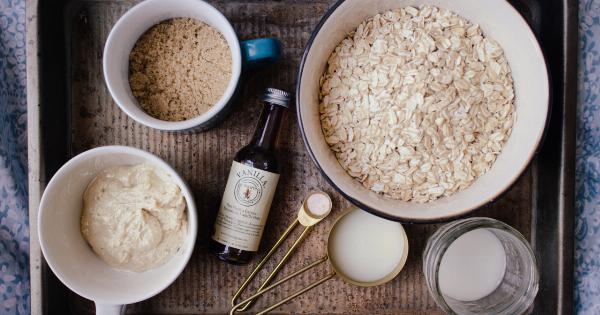Sugar addiction is a growing concern in today’s society. With the increasing availability of sugary foods and drinks, it has become all too easy to develop a dependency on this sweet substance.
Sugar addiction can have numerous negative effects on your physical and mental health, including weight gain, diabetes, and mood swings. However, breaking this addiction is possible with the right strategies and determination. In this article, we will explore various ways to overcome sugar addiction and regain control of your health and well-being.
Understanding Sugar Addiction
Sugar addiction is characterized by a strong craving for sugary foods and drinks.
This addiction is fueled by the pleasurable feeling we experience when consuming sugar, as it triggers the release of dopamine in our brain – the same chemical responsible for feelings of happiness and reward. Over time, our bodies develop a tolerance to sugar, leading to the need for larger amounts to achieve the same level of satisfaction. This vicious cycle often results in overconsumption and dependence on sugar.
The Negative Impact of Sugar Addiction
Sugar addiction can take a toll on various aspects of your health, both physically and mentally. Here are some of the harmful effects associated with excessive sugar consumption:.
1. Weight Gain and Obesity
Consuming sugary foods and drinks leads to weight gain due to their high caloric content. Additionally, sugar consumption stimulates the release of insulin, a hormone responsible for storing excess sugar as fat.
This can contribute to the development of obesity and its associated health risks, such as heart disease and certain types of cancer.
2. Increased Risk of Type 2 Diabetes
Studies have shown a strong link between excessive sugar intake and the development of type 2 diabetes. When we consume large quantities of sugar, our bodies struggle to produce enough insulin to regulate blood sugar levels effectively.
Over time, this can lead to insulin resistance and the development of diabetes.
3. Negative Impact on Mental Health
While sugar may provide a temporary mood boost, consuming excessive amounts can have detrimental effects on mental health. Research suggests that high sugar intake is associated with an increased risk of depression and anxiety.
Furthermore, sugar addiction can lead to mood swings, irritability, and difficulty concentrating.
Strategies for Breaking Sugar Addiction
Breaking the sugar addiction requires commitment and a well-rounded approach. Here are some effective strategies to help you reduce your sugar intake and overcome dependency:.
1. Educate Yourself
The first step towards breaking any addiction is understanding its impact. Educate yourself on the harmful effects of excessive sugar consumption, as well as the benefits of reducing your intake.
Read books and articles, watch documentaries, and stay informed about the latest research in this field.
2. Gradual Reduction
Cutting out sugar entirely can be challenging and often leads to cravings and relapses. Instead, focus on gradually reducing your sugar intake.
Start by eliminating the most obvious sources of sugar, such as soda and candy, and slowly work your way towards minimizing hidden sugars in processed and packaged foods.
3. Opt for Whole Foods
Eating whole, unprocessed foods is an effective way to reduce your sugar intake. Fresh fruits and vegetables, lean proteins, and whole grains are all great choices.
These foods provide essential nutrients and fiber, which can help curb cravings and stabilize blood sugar levels.
4. Watch Out for Hidden Sugars
Sugar can often be found in unexpected places, such as condiments, salad dressings, and even savory snacks. Always check food labels and be mindful of hidden sugars.
Look for alternative brands or make your own sauces and dressings to reduce your sugar intake.
5. Find Healthy Alternatives
Instead of reaching for sugary treats, experiment with healthier alternatives that satisfy your sweet tooth without the negative effects. For example, opt for fresh fruit, unsweetened yogurt, or homemade smoothies.
Stevia, a natural sweetener, can also be used in moderation.
6. Manage Stress and Emotions
Many people turn to sugar as a means of coping with stress or negative emotions. Find healthier ways to manage stress, such as exercise, meditation, or engaging in a hobby.
Building a support network and seeking professional help, if needed, can also be beneficial.
7. Get enough Sleep
A lack of sleep can contribute to sugar cravings and affect your ability to make healthy choices.
Aim for a consistent sleep schedule and prioritize quality sleep to ensure your body functions optimally and you are better equipped to resist sugary temptations.
8. Stay Hydrated
Dehydration can often be mistaken for hunger or sugar cravings. Keep a water bottle with you at all times and drink enough water throughout the day. Herbal teas and infused water can also provide a refreshing alternative to sugary drinks.
9. Seek Support
Breaking any addiction is easier with the support of others. Surround yourself with like-minded individuals or join support groups where you can share your challenges and successes.
The accountability and encouragement provided by a supportive community can greatly increase your chances of successfully overcoming sugar addiction.
10. Celebrate Progress, not Perfection
Finally, remember that breaking sugar addiction is a journey. It’s important to celebrate even the smallest victories and not be too hard on yourself when slip-ups occur.
Focus on long-term progress rather than aiming for perfection, and be kind to yourself throughout the process.
Conclusion
Breaking the sugar addiction is an essential step towards improving your overall health and well-being.
By understanding the impact of excessive sugar consumption, gradually reducing your intake, and adopting healthier habits, you can regain control over your relationship with sugar. Remember, breaking any addiction takes time and perseverance, so be patient with yourself and celebrate every step in the right direction.




























